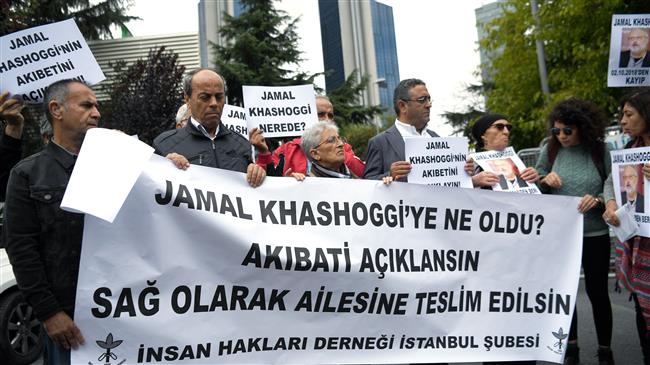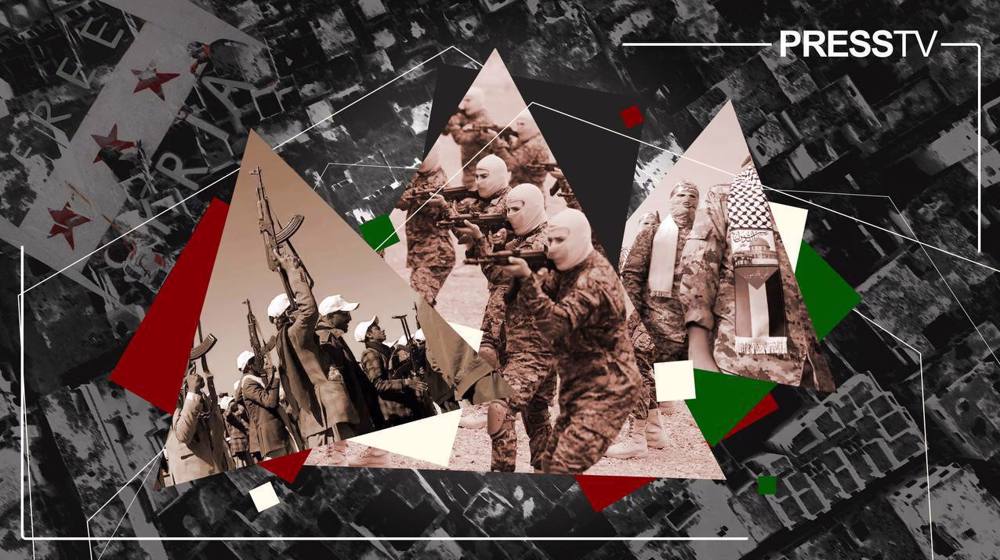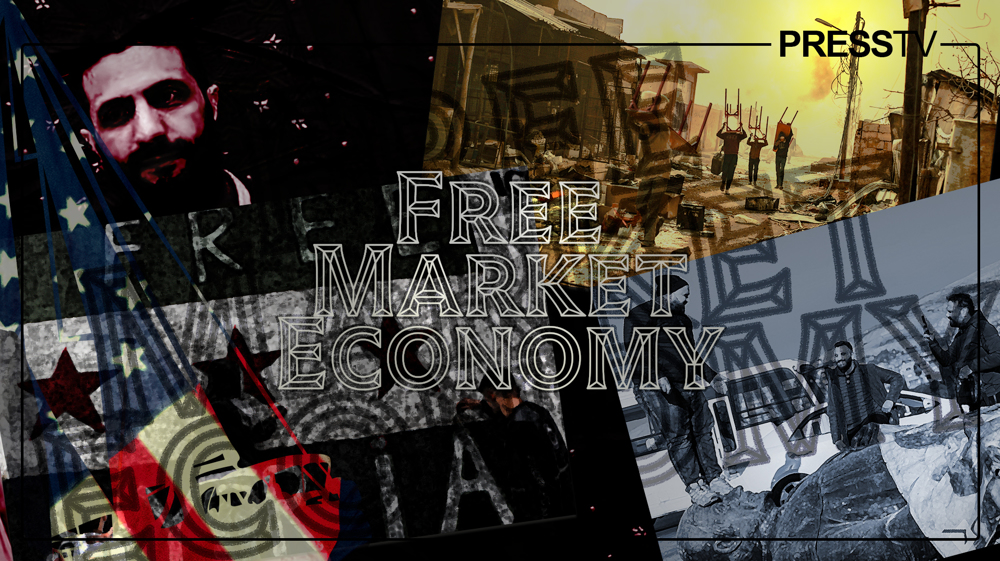Saudi Arabia's dark history of abduction and killing dissidents
Jamal Khashoggi, a veteran journalist who has been critical of Crown Prince Mohammed bin Salman, has now joined the growing list of Saudi dissidents who have mysteriously disappeared in recent years.
Khashoggi has been unaccounted for since last Tuesday when he entered the Saudi diplomatic mission in Istanbul to receive a certificate about his finished marriage in Saudi Arabia.
Turkish investigators are working to piece together what happened outside the consulate. What happened inside remains a mystery.
Turkish authorities believe he died there at the hands of a "murder squad" flown from Riyadh to kill him and dispose of his body. His body was smuggled out, they added, perhaps in a diplomatic car.
An adviser to Turkey’s president on Tuesday vowed that the country will prosecute all those involved in the suspected kidnapping or murder of the dissident Saudi journalist, even if it involves the Saudi consul himself.
Saudi Arabia’s repression reaches Istanbul as Turkish President Recep Tayyip Erdogan was already on bad terms with Saudi Arabia, partly over his support for Qatar in its dispute with its Persian Gulf neighbors.
In the last few years, at least three other Saudi nationals, all outspoken critics of the Saudi leadership and all living in Europe, have been kidnapped. Friends and allies say they were thrown into prison in Saudi Arabia – or worse.
"Despite the denials, the oil-rich Kingdom is an absolute monarchy and has a track record of refusing to tolerate dissent by its citizens – both domestically and abroad," according to a report by the Middle East Eye.
The Committee to Protect Journalists Deputy Executive Director Robert Mahoney said in a recent statement that the group was "alarmed" by the reports that Khashoggi may have been killed inside the consulate.
"The Saudi authorities must immediately give a full and credible accounting of what happened to Khashoggi inside its diplomatic mission," Mahoney said. "The country has stepped up its repression of critical journalists in the past year at home. We hope this has not now spread abroad."
It is no mystery why Saudi Arabia might have wanted to silence Khashoggi, a critic of the leader-in-waiting, Crown Prince Mohammed bin Salman.
The journalist wrote frequently in Arabic, penned a regular column for The Washington Post, and kept close ties with countless diplomats and journalists. For over a year, he used that platform to criticize growing repression in Saudi Arabia and urge an end to the war in Yemen.
Whatever his fate, Khashoggi’s disappearance has sent a chilling message to critics of the crown prince.
In addition, the crown prince detained more than 100 royals and ministers in a purported corruption sweep last year. Dozens of activists still languish in jail; some may face the death penalty.
Astonishingly, the Saudis detained a sitting prime minister, Saad Hariri of Lebanon, for two weeks in November.
Even spiriting Khashoggi out of Turkey would have had precedent. In March, a women’s-rights activist, Loujain al-Hathloul, was detained in Abu Dhabi and whisked back to Saudi Arabia, where she remains in jail.
But murdering a critic abroad would be a chilling escalation, a tactic previously used by former dictators like Saddam Hussein and Muammar Gaddafi, who used their embassies to terrorize exiles.
In October, a report by a Canadian academic lab found that the Saudi government used Israeli-made Pegasus spyware to snoop on the phone of a prominent Saudi dissident living in Canada.
In the United States, where Khashoggi was a resident, administration of President Donald Trump may be less bothered. He is close to the Saudis and not exactly a champion of human rights or press freedom.
A few members of Congress have however expressed outrage. “If this is true… it should represent a fundamental break in our relationship,” says Chris Murphy, a Democratic senator.
Other reactions will matter more. If the crown prince abducted or killed a critic in Istanbul, business leaders may wish to reconsider attending a major investment conference in Riyadh later this month.
A final question is how the Saudis themselves will react. Bin Salman’s economic reforms have met predictable headwinds. His foreign policies range from missteps, like the blockade of Qatar, to catastrophes, like the war in Yemen.
The rights group Prisoners of Conscience, which is an independent non-governmental organization advocating human rights in Saudi Arabia, announced in a post on its official Twitter page last month that Saudi authorities were reportedly keeping more than 2,500 anti-regime activists behind bars as part of a widening crackdown led by bin Salman against Muslim preachers.
Riyadh has suppressed pro-democracy rallies within the kingdom, but they have intensified since January 2016 when Saudi Arabia executed respected Shia cleric Sheikh Nimr al-Nimr.
Last year, Awamiyah, mainly populated by Shia Muslims, witnessed angry protests against the Riyadh regime over its controversial campaign to raze the historical Musawara neighborhood of the town, located in the Qatif region, under the pretext of “renovating” the area.
Riyadh responded to the protests with force, prompting heavy clashes with the locals.
Riyadh then deployed military forces with heavy weapons to the town, while bulldozers escorted by heavily armored military vehicles demolished several houses, businesses and historical sites across the Shia-majority region.
Dozens of civilians were killed in the weeks-long military crackdown, including a three-year-old boy who died after a Saudi armored vehicle fired on his family car, according to locals. Some 30,000 people also fled the town.
Rights groups said in August that Saudi Arabia may for the first time execute a female human rights activist who was arrested some three years ago on charges of supporting anti-government protests and inciting people to disobey the regime.
Israa al-Ghomgham from the Qatif region in the kingdom’s oil-rich Eastern Province came on government radars during 2011 protests in Qatif and demanded an end to discrimination against Shia Muslims and the release of political prisoners.
According to UK-based international rights group Amnesty International, Saudi Arabia has one of the highest execution rates in the world.
Muslim clerics have also slammed Riyadh for indicting and then executing suspects without giving them a chance to defend themselves, describing the Saudi authorities as uncivilized.
The US and UK, close allies of Riyadh, have largely kept silent on the regime's suppression of dissent in the kingdom. They have been the major providers of arms to Saudi Arabia during its deadly war on Yemen.
John Steppling, a political commentator, told Press TV last year that human rights condition in Saudi Arabia had been escalated in recent years and the West was keeping silent about it.
“It’s just extraordinary that Western nations lecture others on human rights and then form this obscene close partnership with the world’s number one human rights violator Saudi Arabia … hypocrisy, war crimes and human rights violations by the Saudi government [are] endless,” Steppling said.
'Next to impossible' to rescue patients from Gaza's Kamal Adwan Hospital: Director
VIDEO | Vietnam current prosperity
Report blames gasoil exports for shortage at Iranian power plants
VIDEO | Hind Rajab Foundation names Israeli war criminals vacationing after Gaza genocide
VIDEO | Australians rally for Gaza ahead of Christmas festivities
VIDEO | Attacks on Sana'a
Iran reports further drop in annual inflation rate in December
Israel indicts two settlers over suspected spying for Hezbollah















 This makes it easy to access the Press TV website
This makes it easy to access the Press TV website